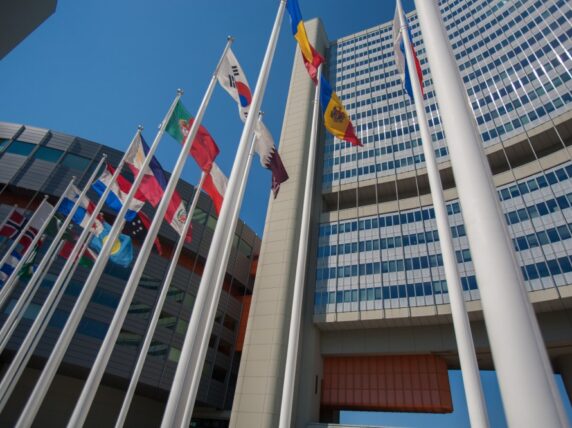The UK curbs the right to protest, as global civic space is under attack
The right to protest is a fundamental human right and integral to a healthy democracy and open society. Yet the UK government is being inconsistent in what it says and what it does.
Yesterday morning, in the newly published Integrated Review, the government committed to prioritising open societies and human rights internationally and domestically. But, just that evening, Parliament voted for legislation that places severe restrictions on non-violent protests in the UK.
The Police, Crime, Sentencing and Courts Bill
Last week the government announced the Police, Crime, Sentencing and Courts Bill 2021. The bill clamps down on a range of rights and freedoms. It is being rushed through parliament, with the second reading taking place just days after the bill was introduced. Passing with 359 votes to 263, the bill now proceeds to committee.
The bill contains a number of threats to the right to peaceful protests. In its current form, the bill will:
- introduce new police powers to decide where, when and how people can protest
- increase penalties for those breaching police conditions on protests
- criminalise trespass and threatens to destroy Gypsy and Traveller communities’ way of life.
This is just the latest in a barrage of attacks on civic space. The CIVICUS Monitor rates the UK’s civic space as “narrowed”, meaning the government does not fully enable and protect all people’s participation in civic space. Over the last six months, Bond has recorded a range of policies, statements, legislation and regulation that demonstrate the hostile environment the government is creating for civil society.
Why is this bill so concerning for NGOs?
Bond was among 200+ organisations who signed a public letter calling for the government to rethink its approach. This is because:
- The bill will make it harder for civil society organisations and their supporters to organise and take part in non-violent protests.
- The right to protest is under threat globally and the UK, for whom open societies is purportedly a foreign and development priority, should be leading by example.
- The international development sector should stand in solidarity with communities here in the UK who will be most affected – Gypsy and Traveller communities, and those campaigning on environment, climate change and anti-racism.
Civic space is under pressure globally
The UK is not the only country where civil society is facing new restrictions. The pandemic has exacerbated trends like rising authoritarianism, corruption, securitisation, discrimination and political instability.
Many governments have used Covid-19 as a pretext to introduce emergency powers that infringe rights. These emergency powers often “persist and become permanent” warns UN Special Rapporteur.
Subscribe to our newsletter
Our weekly email newsletter, Network News, is an indispensable weekly digest of the latest updates on funding, jobs, resources, news and learning opportunities in the international development sector.
Get Network NewsAll over the world, throughout the pandemic, people have protested inequality, economic conditions, racism and infringement of rights – online and in-person. While limiting social gatherings may be a legitimate public health response in the context of Covid-19, there is no reason that socially distanced, peaceful protests should not be permitted. But instead of addressing the grievances behind the protests, many governments have sought to curb rights and increase punishment.
What about the UK’s commitment to open societies and human rights?
The UK has repeatedly stated its commitment to protecting civic space internationally. The newly created Foreign, Commonwealth and Development Office (FCDO) established an Open Societies and Human Rights Directorate. The FCDO also identified open societies as a priority in the new strategic framework for overseas development assistance, with a focus on democratic institutions, human rights, free media and effective governance.
The government will use the G7 Summit to focus on open societies. In the much-anticipated Integrated Review of Security, Defence, Development and Foreign Policy, the government reiterated the importance of open societies and committed to upholding universal human rights.
Crucially, the Integrated Review states that the UK’s “efforts to reverse this decline in global freedoms must start at home, with open societies working together”. The UK’s domestic actions must back up its international commitment to promote and protect open societies and human rights.
As the bill moves into committee, we will be working with allies across UK civil society to push for changes to the bill, which ensure that people who live in the UK are able to participate in protests. We are also encouraging the UK to lead by example.
We recently published the Civil Society 7’s transformative agenda for the G7. Read our recommendations for the UK and G7 on open societies and civic space.
Category
News & viewsThemes
Politics



